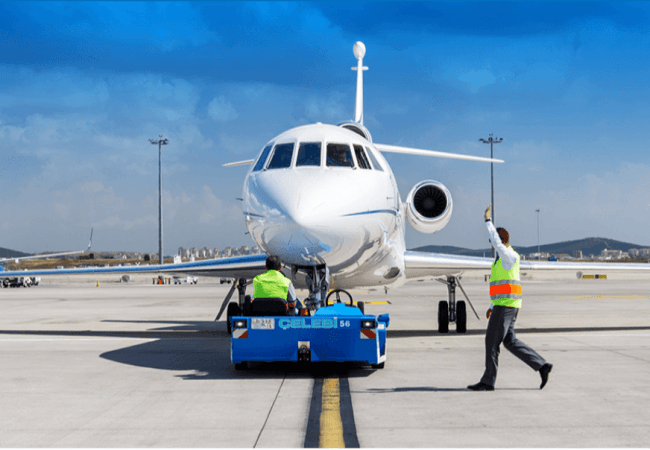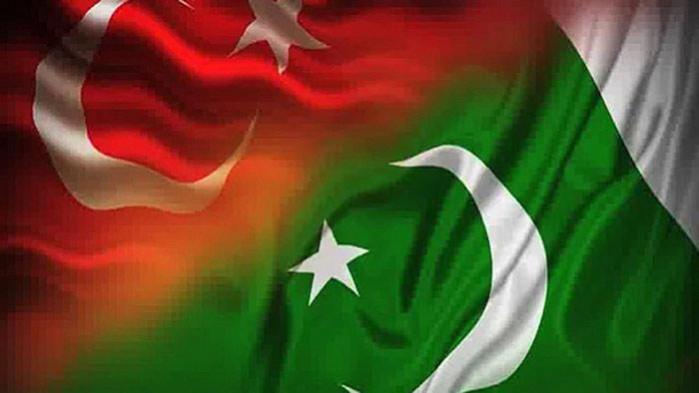![PAK used Turkish drones in India's attack [Representational image] PAK used Turkish drones in India's attack](https://data1.ibtimes.co.in/en/full/816170/pak-used-turkish-drones-indias-attack.jpg?h=450&l=50&t=40)
In the wake of the Pahalgam massacre and the subsequent India-Pakistan military escalation, India's internal security debate has shifted sharply from the borderlands to the heart of its civil aviation and critical infrastructure. At the center of this storm is Çelebi Aviation, a Turkish company whose operational footprint at nine major Indian airports has become emblematic of the new, hybrid threats facing the country. The convergence of commercial, political, and military interests-including direct links to Turkish President Erdoğan's family and to the manufacturers of drones now deployed by Pakistan and Bangladesh-has raised profound questions about the intersection of foreign investment, regulatory oversight, and national security.
Çelebi Aviation: Ownership, Operations, and Strategic Access
Çelebi Aviation, headquartered in Istanbul, began Indian operations in 2008. It now manages ground handling and cargo operations at Delhi, Mumbai, Chennai, Bengaluru, Hyderabad, Cochin, Ahmedabad, Goa, and Kannur airports. Through its Indian subsidiaries, Çelebi handles over 58,000 flights and 540,000 tonnes of cargo annually, employing nearly 8,000 staff. Their privileged access to restricted airside zones is most sensitive at Delhi's Indira Gandhi International Airport, where the Çelebi cargo terminal overlooks the VVIP technical area housing the Prime Minister's aircraft and military intelligence platforms.
As defense analyst Abhijit Mitra Iyer warns, "The Celebi terminal in Delhi overlooks the VVIP technical area where electronic intelligence aircraft are stationed. Prime Minister Narendra Modi's VIP aircraft comes in the vicinity. I don't need to spell out that this is alarming." Indian security sources estimate that around 10% of Çelebi is owned by Sumeyye Erdoğan, daughter of Turkish President Recep Tayyip Erdoğan and wife of Selçuk Bayraktar, the founder of Baykar-the manufacturer of Bayraktar TB2 drones. These drones have been supplied to Pakistan and Bangladesh and are actively used for surveillance and combat against Indian interests. "The matter is far more serious than it appears to be. We suspect around 10 per cent of the firm is owned by Sumeyye Erdogan... the man who produces Bayraktar drones which Pakistan used against India," Iyer further cautions.

Turkey's Defense Exports: Scale, Reach, and South Asian Impact
Turkey's defense sector is now a global force. In 2024, Turkish defense exports hit a record $7.1 billion, up from $5.5 billion in 2023. The sector's top exporters include Baykar ($1.8 billion), TUSAŞ Aviation ($750 million), and Roketsan ($179 million), with Turkish defense products now reaching 180 countries. Monthly export growth has been dramatic: February 2025 alone saw a 44% year-on-year increase, with $434 million in exports.
This global surge is not abstract for India. Pakistan is now Turkey's second-largest defense customer after China, with Turkish drones, naval systems, and electronic warfare platforms playing a key role in modernizing Pakistan's military. During the recent India-Pakistan conflict, open-source intelligence and Indian defense sources confirmed Turkish Air Force C-130 Hercules aircraft delivered military cargo to Pakistan in late April 2025, just days after the Pahalgam attack. "Turkey supplied armed drones and trained operators to Pakistan during a recent military confrontation with India... following airstrikes by India on terror camps in Pakistan and Pakistan-occupied Kashmir (PoK) under Operation Sindoor on May 7," reported PTC News.
Bangladesh, too, has acquired Bayraktar TB2 drones and deployed them for surveillance near Tripura and Mizoram, raising further questions about the regional proliferation of Turkish defense technology and its implications for Indian security. "Bangladesh Armed Forces have acquired Turkish TB-2 Bayraktar drones and are actively using them for surveillance operations near the Indian border," confirmed defense sources to ANI.
Aviation Security: International Expert Perspectives
Aviation security experts worldwide caution that ground handling and cargo operations are among the most sensitive components of airport security. As Dr. John Sullivan, a senior fellow at the Global Aviation Security Institute, notes, "Cargo terminals and ground handling staff have access to areas that are often beyond the reach of routine passenger screening. In high-risk environments, foreign operators with dual-use technology links or adversarial affiliations should be subject to the highest level of scrutiny."
Former UK aviation security chief Sir Malcolm Grant adds, "The risks are not just about physical sabotage. Intelligence gathering-monitoring VVIP movements, mapping security protocols, or even tracking military flights-can be facilitated by privileged access to airport infrastructure. Any country facing an adversarial security environment must regularly review and, if necessary, restrict such access."
Çelebi's Security Clearance, Political Backlash, and Regulatory Oversight
Çelebi's entry into India was controversial from the outset, with security clearance granted in the shadow of the 2008 Mumbai attacks. Aviation unions and political leaders, particularly from the Shiv Sena, have long opposed Çelebi's involvement in sensitive operations. The company's Turkish ownership has often been downplayed, but the family and political links are a matter of public record. Recent events have reignited these concerns. Shiv Sena's Murji Patel has demanded the cancellation of Çelebi's contracts, stating, "We will not tolerate a situation where a company with such close links to Pakistan's military suppliers is allowed to operate in our most sensitive airports." Aviation consultant Sanjay Lazar adds, "Celebi tried to cover up their Turkish ownership whenever the issue surfaced due to friction with India."
The government is now systematically reassessing all Turkish business engagements in India, particularly those involving critical infrastructure and high-security zones. According to a recent Press Information Bureau briefing, "All foreign entities with access to Indian critical infrastructure are being subject to enhanced security review in light of recent events and evolving threat perceptions".
Beyond Çelebi: Turkish Infrastructure and Investments in India
Çelebi is not the only Turkish company with a footprint in India's strategic sectors. Turkish firms have been involved in metro rail projects in Lucknow and Pune (Gulermak with Tata Projects), the Mumbai Metro (Doğuş Construction-Soma JV), and defense-related infrastructure such as the Atal Tunnel (Savronik). Turkish FDI in India stands at $240 million since 2000, with bilateral trade at $10.4 billion in FY24[3]. These investments span construction, manufacturing, aviation, and knowledge sectors. However, the government is now systematically reassessing all such engagements in light of recent events, and security agencies are conducting a thorough review of all foreign entities with access to critical infrastructure.
Public and Policy Response: Calls for Decisive Action
The public mood in India has shifted dramatically. Indian travel firms have reported a sharp drop in bookings to Turkey following Ankara's vocal support for Pakistan during the recent conflict. Major travel platforms have suspended promotions for Turkish destinations, and prominent brands like Go Homestays have ended partnerships with Turkish Airlines, citing the airline's "unsupportive stance towards India". The RSS-affiliate Swadeshi Jagran Manch has called for economic sanctions, suspension of civil aviation links, and a comprehensive review of all diplomatic and commercial ties with Turkey. "This defence collaboration is not just commercial; it is ideological, targeting the stability of South Asia and emboldening Pakistan's military adventurism," said SJM national co-convenor Ashwini Mahajan.

The Security Dilemma: Commercial Activity or Strategic Infiltration?
The convergence of Turkish commercial interests, military support to India's adversaries, and direct political family links to the Erdoğan regime presents a unique challenge. The proximity of Çelebi's operations to sensitive military and VVIP assets, combined with Turkey's active military support to Pakistan and Bangladesh, has created what many analysts describe as a "clear and present danger" to Indian national security. As one senior intelligence official put it, "This isn't just a conflict of interest-it's a conflict of sovereignty. When Erdoğan's family-linked entities run cargo terminals at nine major Indian airports, including Delhi's sensitive zones, and his son-in-law sells drones to Pakistan, it's not just optics-it's operational vulnerability."
Strategic Vigilance and Policy Reform Imperative
The Çelebi case is a stark reminder of the complex interplay between commerce, geopolitics, and national security in a globalized world. When entities linked to a foreign government-especially one actively arming India's adversaries-are granted privileged access to critical infrastructure, the risks extend far beyond commercial competition. As India reassesses its relationship with Turkey and scrutinizes all foreign engagements in strategic sectors, the lesson is clear: national security and sovereignty must take precedence over business interests. In an era where technology, intelligence, and alliances are increasingly blurred, vigilance and strategic foresight are not optional-they are imperative for the defense of the nation.
As Abhijit Mitra Iyer succinctly put it, "The matter is far more serious than it appears to be." The persistent support from Turkey to Pakistan, despite India's efforts to foster a different relationship, has reached a point where inaction is no longer an option. India must now adopt a comprehensive policy that not only addresses immediate concerns but also ensures long-term oversight to protect against similar incursions. If India considers its internal security and sovereignty non-negotiable, it is time to act decisively.
Ultimately, the Çelebi controversy is a test case for how India-and any democracy-should balance openness to global business with the imperatives of national security in an era of hybrid threats. The decisions made now will shape not just the future of India's airports, but the contours of its sovereignty and security for years to come.
[Major General Dr Dilawar Singh is an Indian Army veteran who has led the Indian Army's Financial Management, training and research divisions introducing numerous initiatives therein. He is the Senior Vice President of the Global Economist Forum AO ECOSOC, United Nations and The Co President of the Global Development Bank.]

















